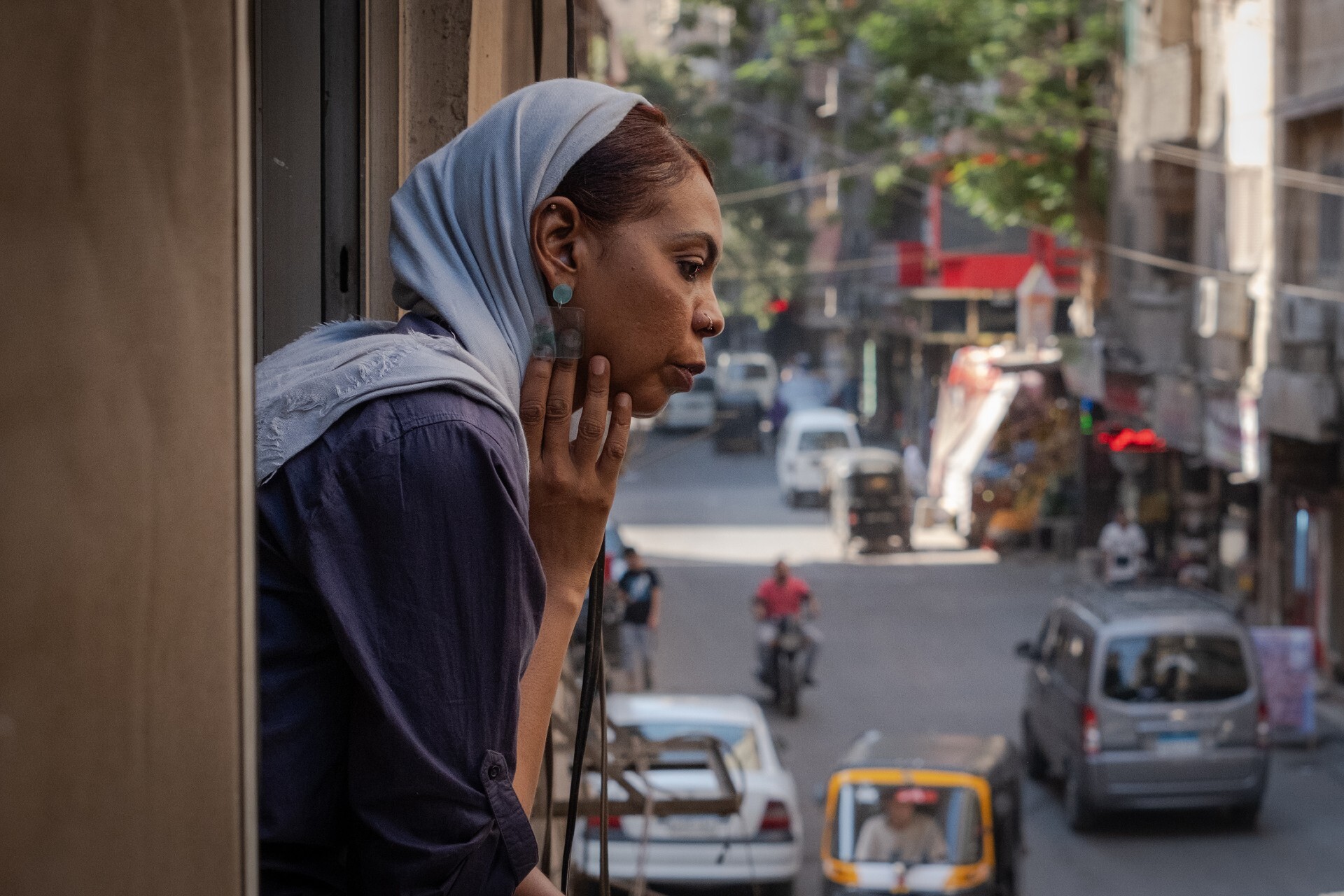
Displaced From Sudan, Young Refugees Find Solace at School
After fleeing war-torn nightmares, refugees in neighboring Egypt are finding a way to dream again.
After 16 months in the all-out crossfire of two warlord-led forces, Sudan is devastated by the largest displacement crisis in the world, and one of the most neglected. There, children endure a 480 percent increase in grave violations, and the weapon of sexual violence is brutally wielded against women and girls—all with impunity, and dangerously inadequate levels of humanitarian funding from the international community.
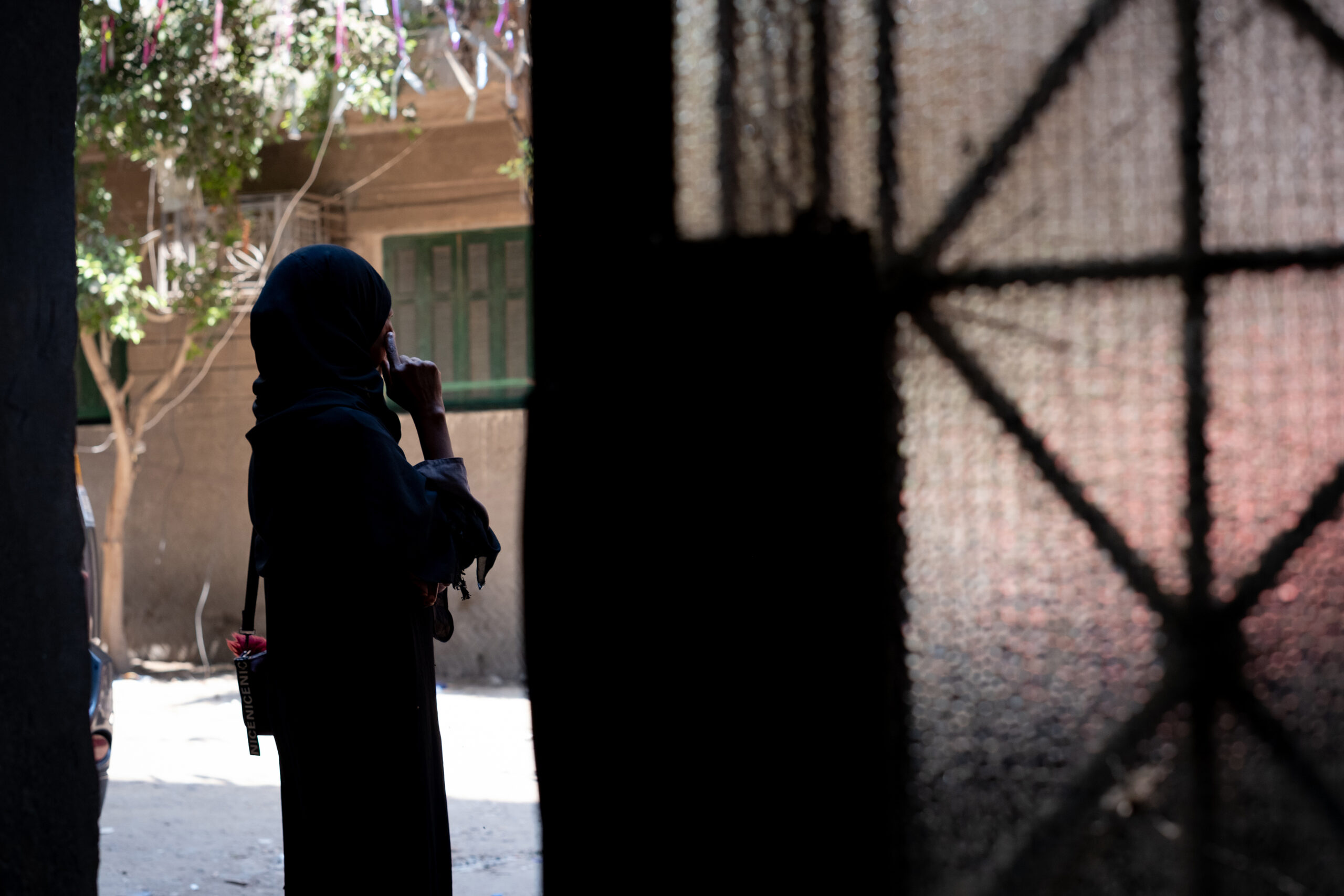
Neighboring Egypt, home to millions of Sudanese nationals, is a key refuge for civilians fleeing the bloody power struggle that erupted in April 2023 between Sudan’s de facto ruler, who commands the Sudanese Armed Forces (SAF), and his ex-deputy and partner in mass atrocity crimes, the head of the paramilitary Rapid Support Forces (RSF). The majority of the over 500,000 new Sudanese arrivals known to the UN Refugee Agency in Egypt are women and children once caught in the generals’ catastrophic “war on people.” From nightmares to dreams, here are some of their stories, collected in June, across the Egyptian capital Cairo.
The school of dreams
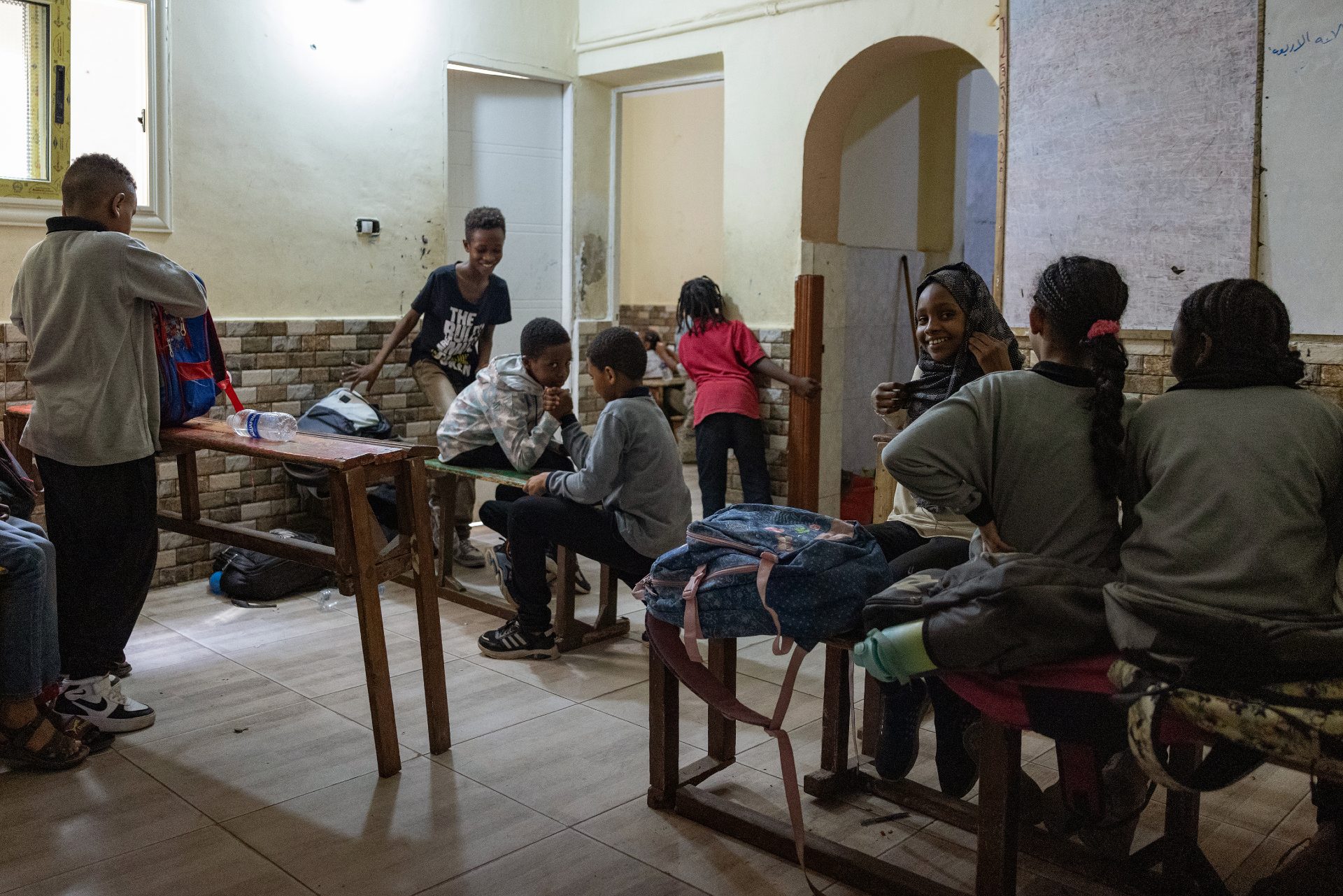
Aseel, 14, uses her pens and pencils to take notes, finish assignments, and draw the bloodshed and brutality that displaced her from Sudan’s embattled capital, Khartoum, in June 2023. “On our journey to escape,” the student recalls, through RSF-controlled streets, “I cried every single day as I heard about someone who was killed, kidnapped, or raped.” She adds: “I was very scared, because we know what they [soldiers] do to girls.”
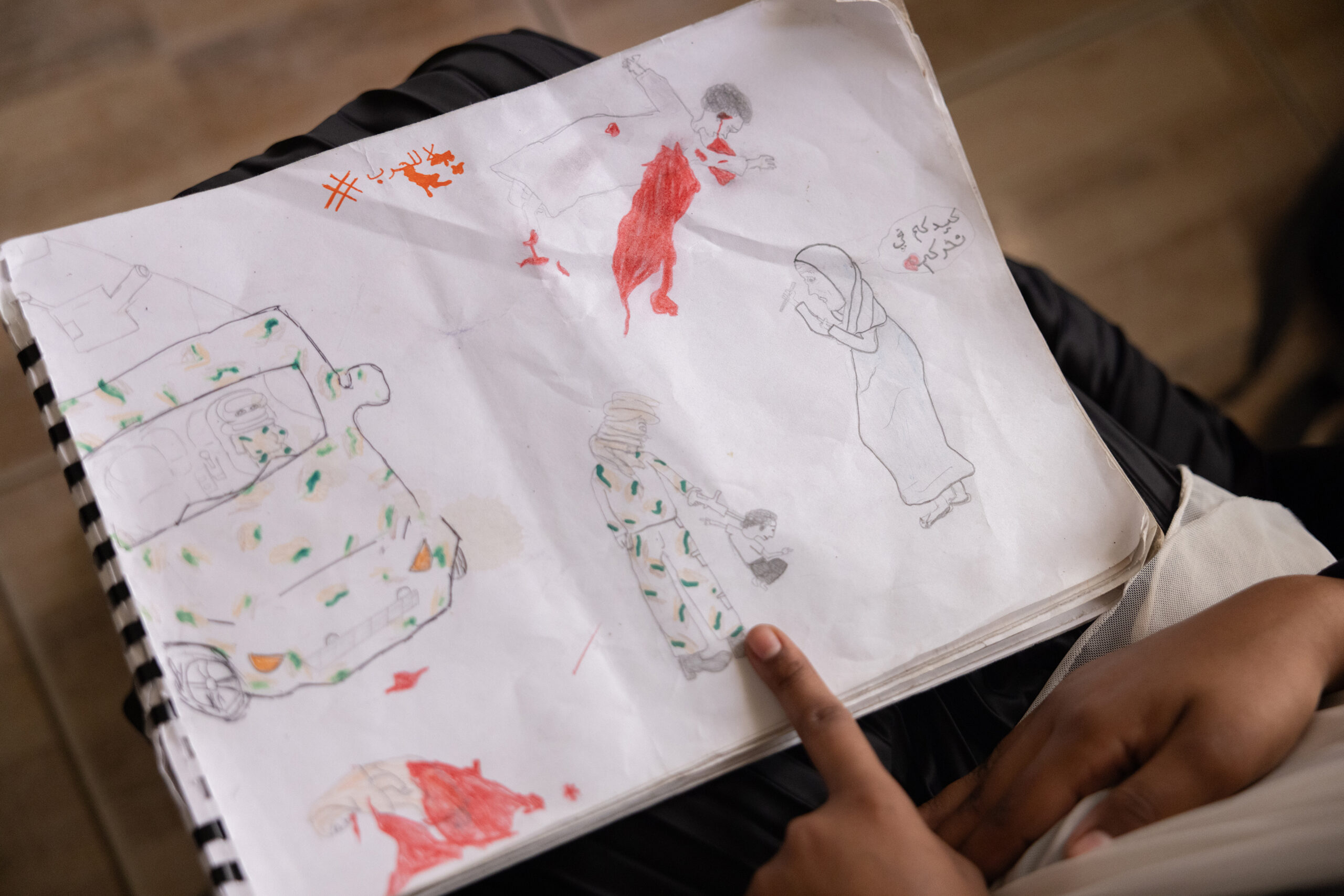
Now, living in relative safety in Cairo, Aseel attends the Dreams Community Center for Education, a Sudanese-run charity and line of defense against wartime trauma and toxic stress. The registered learning center, which follows the Sudanese schooling system, offers classes in core subjects to around 200 pupils, ages 5 to 18, most of whom fled Sudan’s war over the past year. More than a quarter of their country’s 47 million people have been uprooted, with women and girls, like Aseel, representing the majority of internal and cross-border displacements.
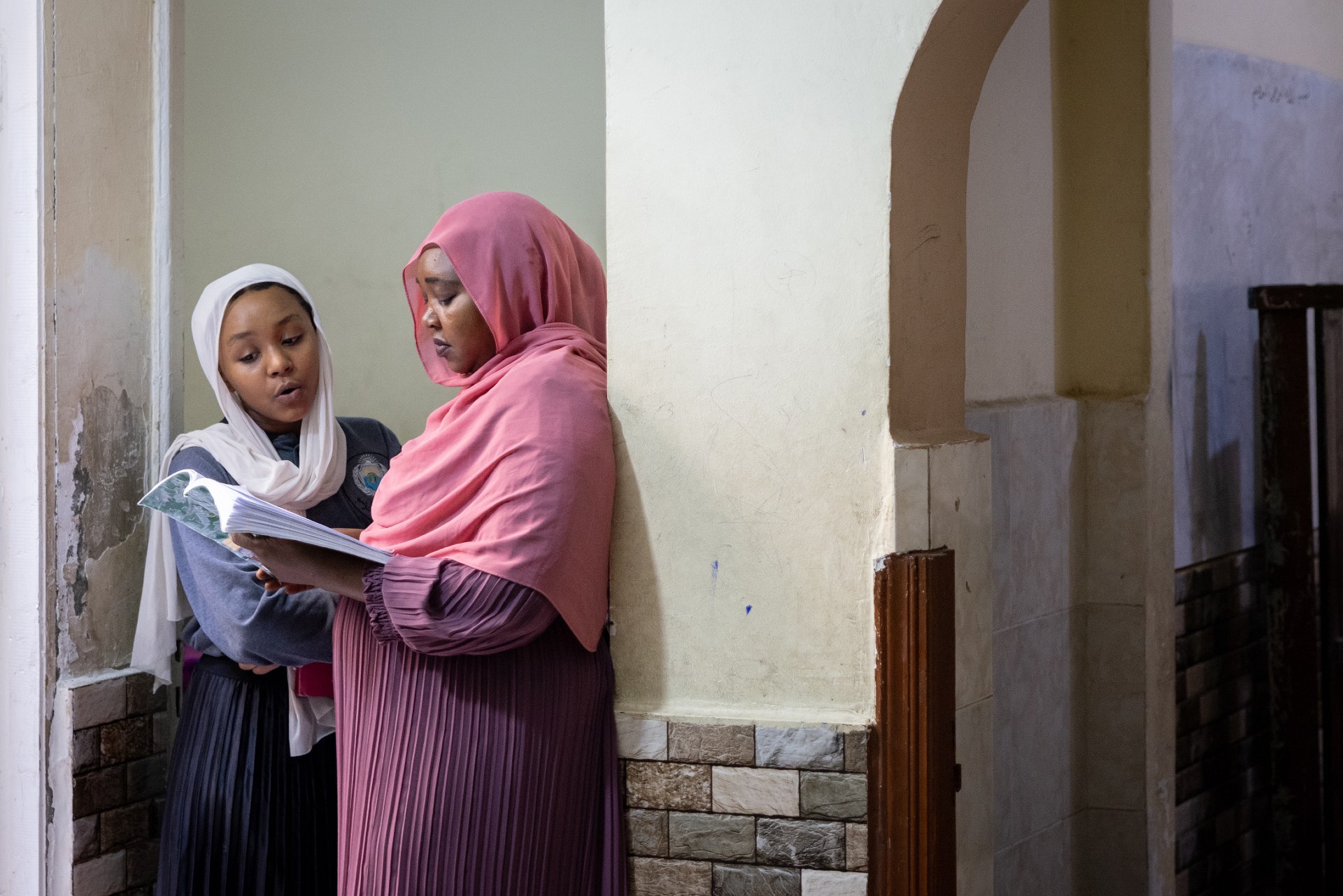
“It’s always better to go to school than to stay home feeling lonely and depressed,” the grieving girl says, sharing how her father died in Cairo in May after the turmoil of their displacement worsened his blood condition. “Everything that is beautiful was in Sudan.” She weeps for their pre-war memories and life together.
According to Save the Children and the Armed Conflict Location and Event Data Project (ACLED), one in two children in Sudan are or have been within three miles of the battlefronts in the last year of war, facing repeated displacement and extreme violence, as well as forcible recruitment. The country’s 19 million school-age children are also mired in one of the world’s biggest education crises: since April 2023, most of their schools have been shuttered nationwide, with some now destroyed by bombs or repurposed as weapons storage facilities or displacement shelters.
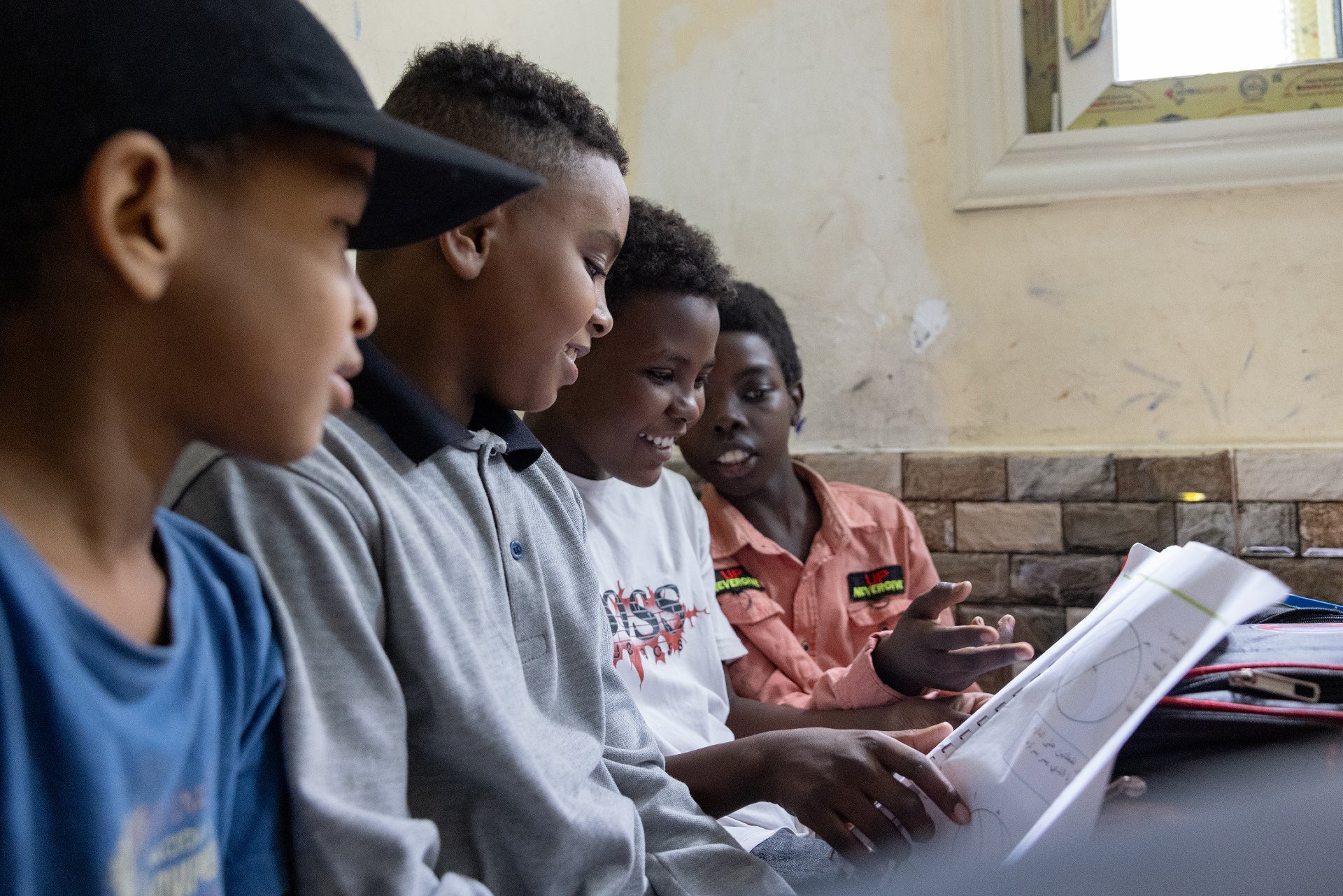
Ghazal, 15, who escaped Sudan’s Gezira state, a crucial breadbasket turned battlefront, in November 2023, finds some solace in the Dreams Community Center. “Meeting the other students here has made a big, positive change in my life,” the high-schooler reflects. “The Sudanese people may have many different stories, but we all share the same pain. I just want the world to see us, support us, and realize how much suffering and fear we’re going through. We’re being exterminated in Sudan, and no one knows anything.”
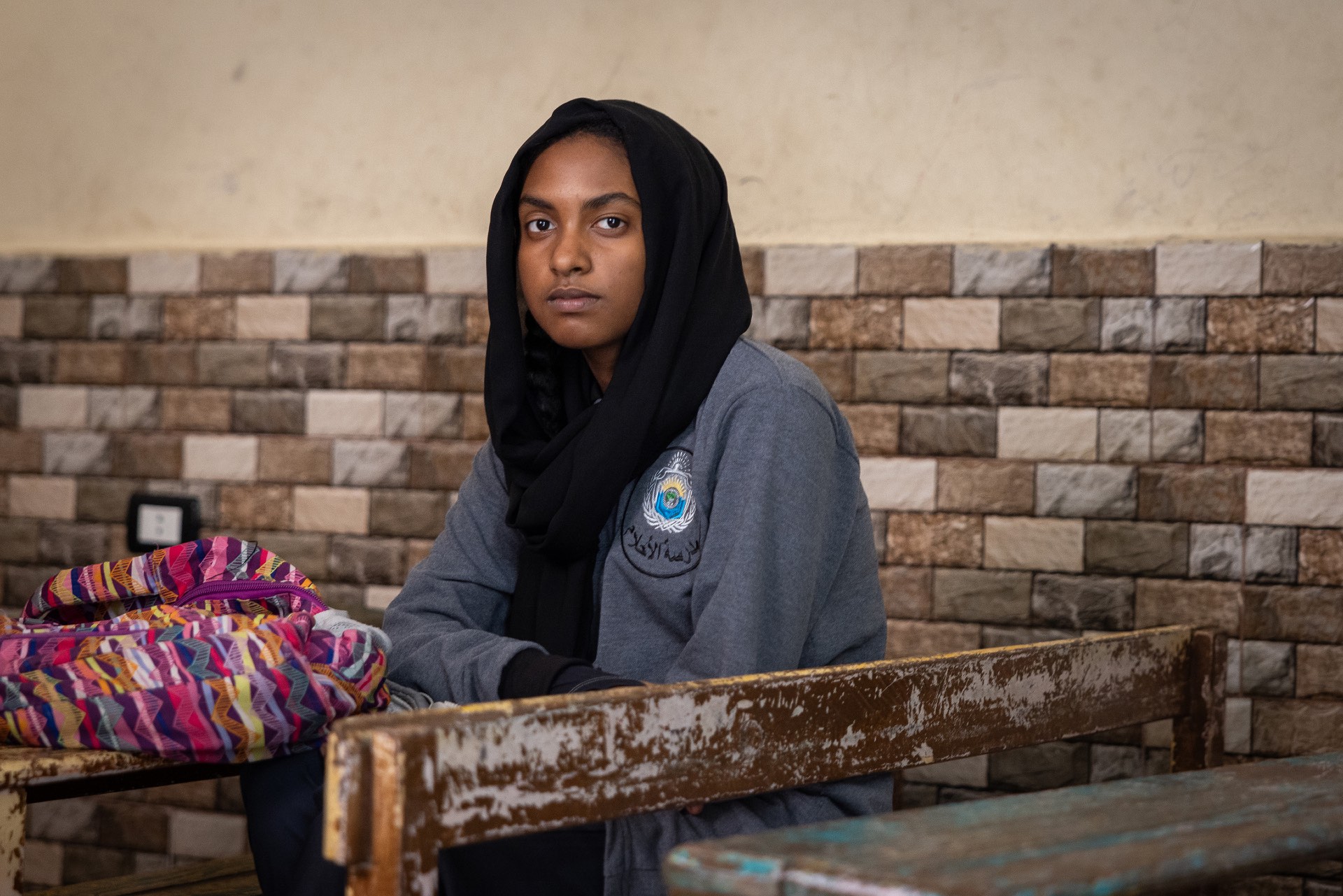
The genocidal power struggle
Several days into the conflict—April 19, 2023—and surrounded by RSF snipers in the heart of Khartoum, a missile ripped through the family home of political commentator Dallia Abdelmoniem. “Before I was upset about the situation, but now I’m angry that we’ve reached this state where the war is being waged and the Sudanese people are paying the price for it, losing everything because of two power-hungry men,” the former journalist says from Cairo. Meanwhile, those SAF and RSF strongmen—who jointly spearheaded the 2021 military coup against Sudan’s transitional civilian-led government—continue to perpetrate crimes against civilians, including the use of starvation as a weapon of war.
While the UN and ACLED put Sudan’s reported wartime fatalities at under 20,000 people, Dallia, along with other advocates and observers, estimates that the death toll is likely upwards of 150,000. “There is a genocide against my people,” she warns. “We’re being killed by bombs and bullets. We’re being intentionally starved. We’re being raped, mostly by RSF soldiers, as a way to instill fear.” Later, she adds, “There was a former government politician in Sudan—10, 15 years ago—who said: If a third of the population is displaced, if a third is killed, we’ll rule the remaining third. This is how they [the SAF and RSF] view us.”
The political, financial, and media neglect of Sudan’s humanitarian nightmare—or “catastrophe the world is choosing to ignore”—only fuels the genocidal SAF-RSF power struggle. “There is inherent bias,” Dallia, 49, observes, “as in, ‘This is another conflict in Africa, in Sudan, their history is all about conflict and war, so what?’ What they don’t understand is that the reason why Africa suffers is because of the role outside parties have—there’s always an agenda.”
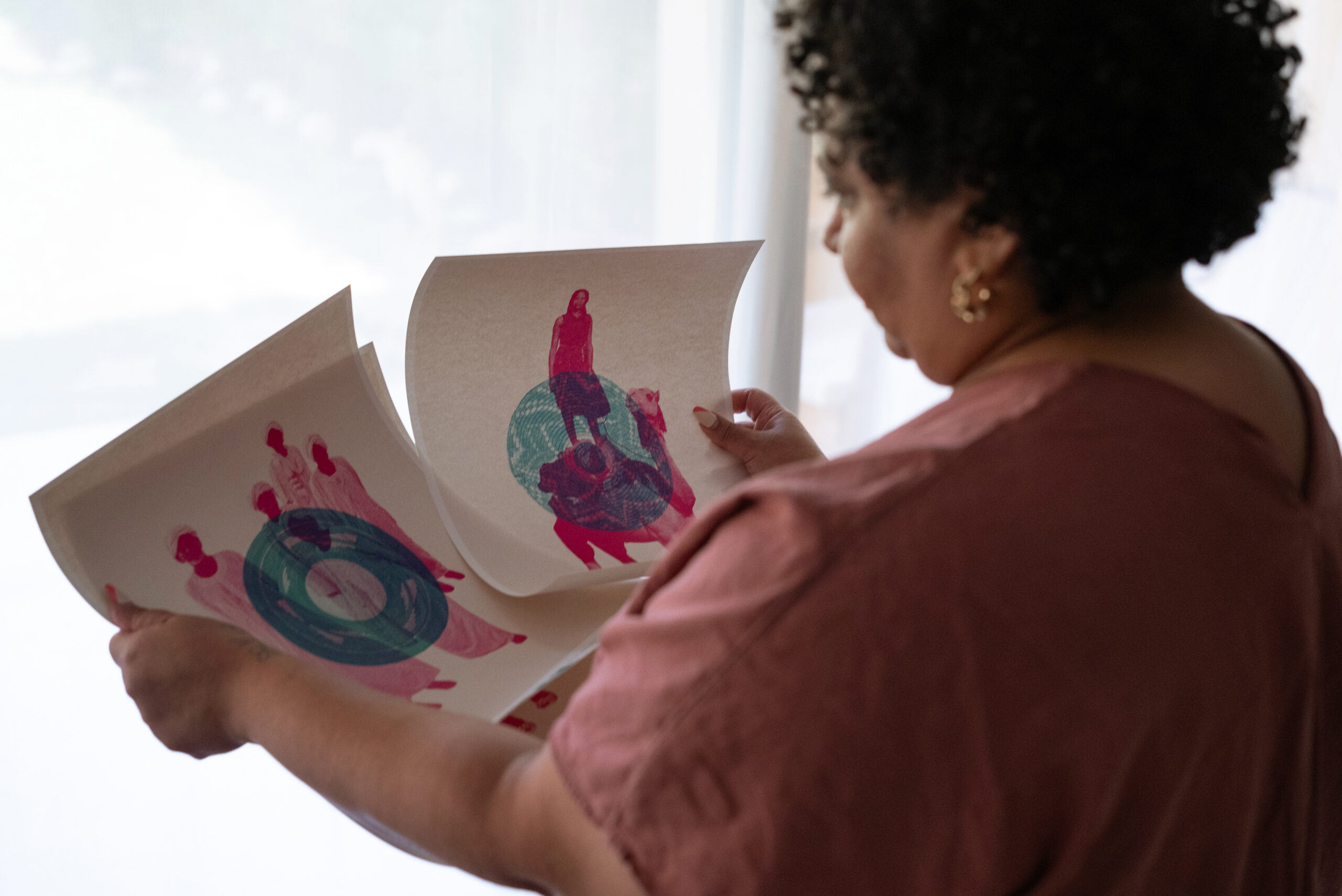
For instance, she continues, “The Biden administration has no interest in Sudan, and the UN Security Council didn’t discuss Sudan until a year after the war broke out. It’s not just the UN, it’s the regional blocs [the African Union and the Arab League].” At the same time, “countries that can play a role have their own interests in this war, whether it’s for the resources, or land grabs, because Sudan is a very resource-rich country.” Or, it’s for war profiteering, as Amnesty International reports of “an almost unimpeded supply of weapons into Sudan by states and corporate actors around the world.”
Life after brutal war
For Huda Qamar, who escaped the hard-hit city of Omdurman in December 2023, her grief is rooted in the loss of her 78-year-old mother on the way to Egypt. “It was very difficult for her to leave home and go through that trip,” the daughter weeps. “At least she died with her family around her, and we got to bury her. Many others were buried in their homes or schools, and others couldn’t even find people to bury them.”
Popular
“swipe left below to view more authors”Swipe →Since April, Huda, 54, has been a volunteer administrator in the education department of the Cairo-based charity Dreams for Peace and Development, the parent organization of the Dreams Community Center for Education. Over the past decade, several thousands of families from Sudan, Yemen, Eritrea, among other neighbors in crisis, have received psychological, educational, and basic-needs support through the Dreams community.
Back home in Sudan, Huda was a psychologist and researcher, including with the Sudanese Ministry of Health. Now, from her office desk in Cairo, she fears for her people as a nightmare scenario rages: only 20 to 30 percent of Sudan’s healthcare facilities are operational at a time of imminent famine, shortages of essential medicines, and outbreaks of deadly and preventable diseases. From health to education, in the words of Sudanese British columnist Nesrine Malik, “It’s not so much a civil war as it is a war against civilians, whose homes, livelihoods, and very lives have been the collateral damage so far.”
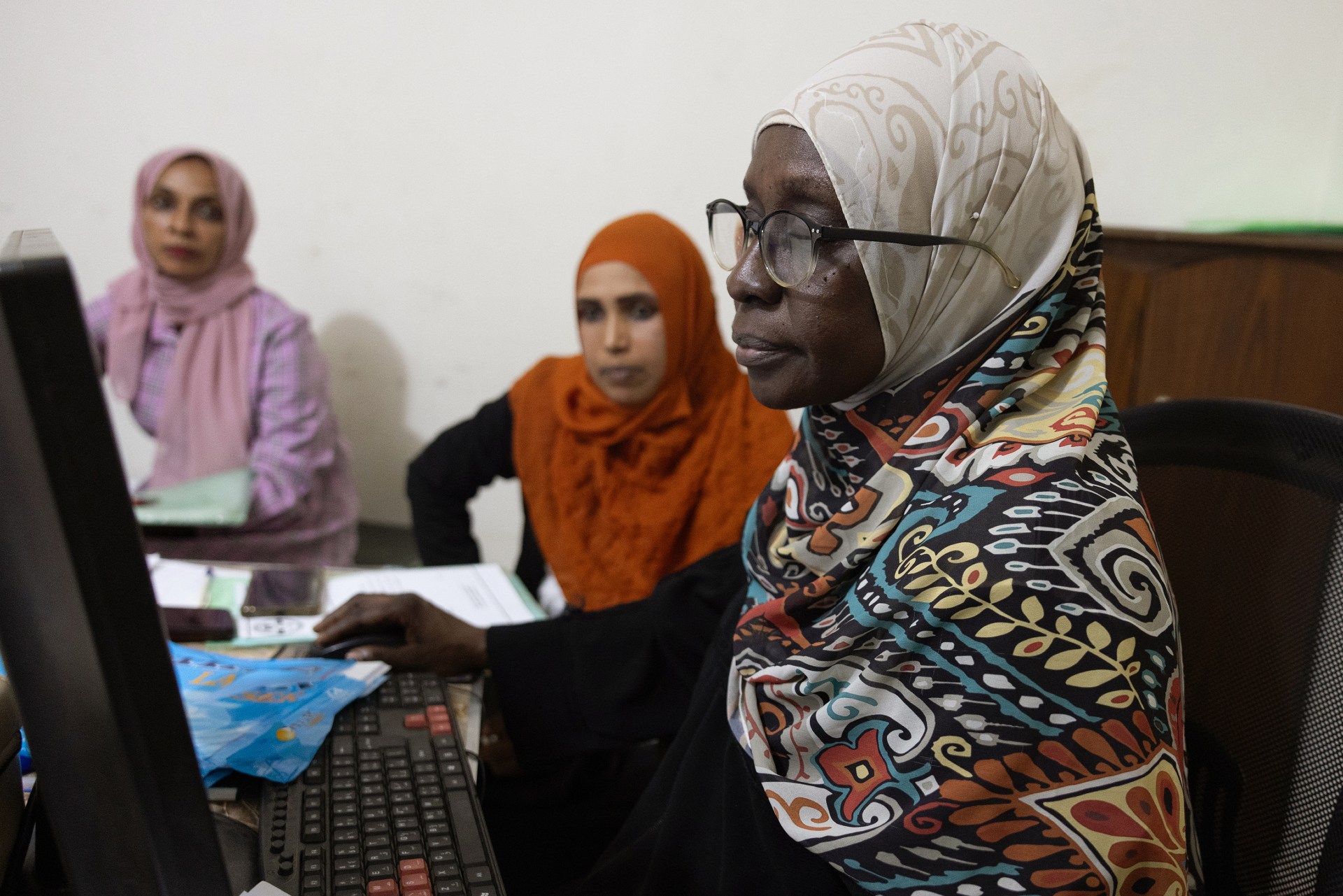
Orsula Almesawaraty, one of Huda’s colleagues at Dreams for Peace and Development, worked as a behavior modification and skills development specialist in Khartoum before fleeing to Cairo in May 2023. “The most bitter thing is the loss of people from death and separation,” reflects the 36-year-old health professional, who now helps children cope with life after war. “It’s like all our memories were deleted, and we’re forced to build new memories, and take new photos, with new people.”
According to the UN Refugee Agency, Egypt has the most registered refugees and asylum-seekers in its history amid civilian devastation in Syria and Sudan. Before April 2023, Egypt hosted about 60,000 registered Sudanese refugees; a year on, over 500,000 new arrivals from Sudan are seeking registration. Amnesty International also warns that tens of thousands of undocumented Sudanese refugees risk arbitrary arrest and unlawful deportation back to the brutal war.
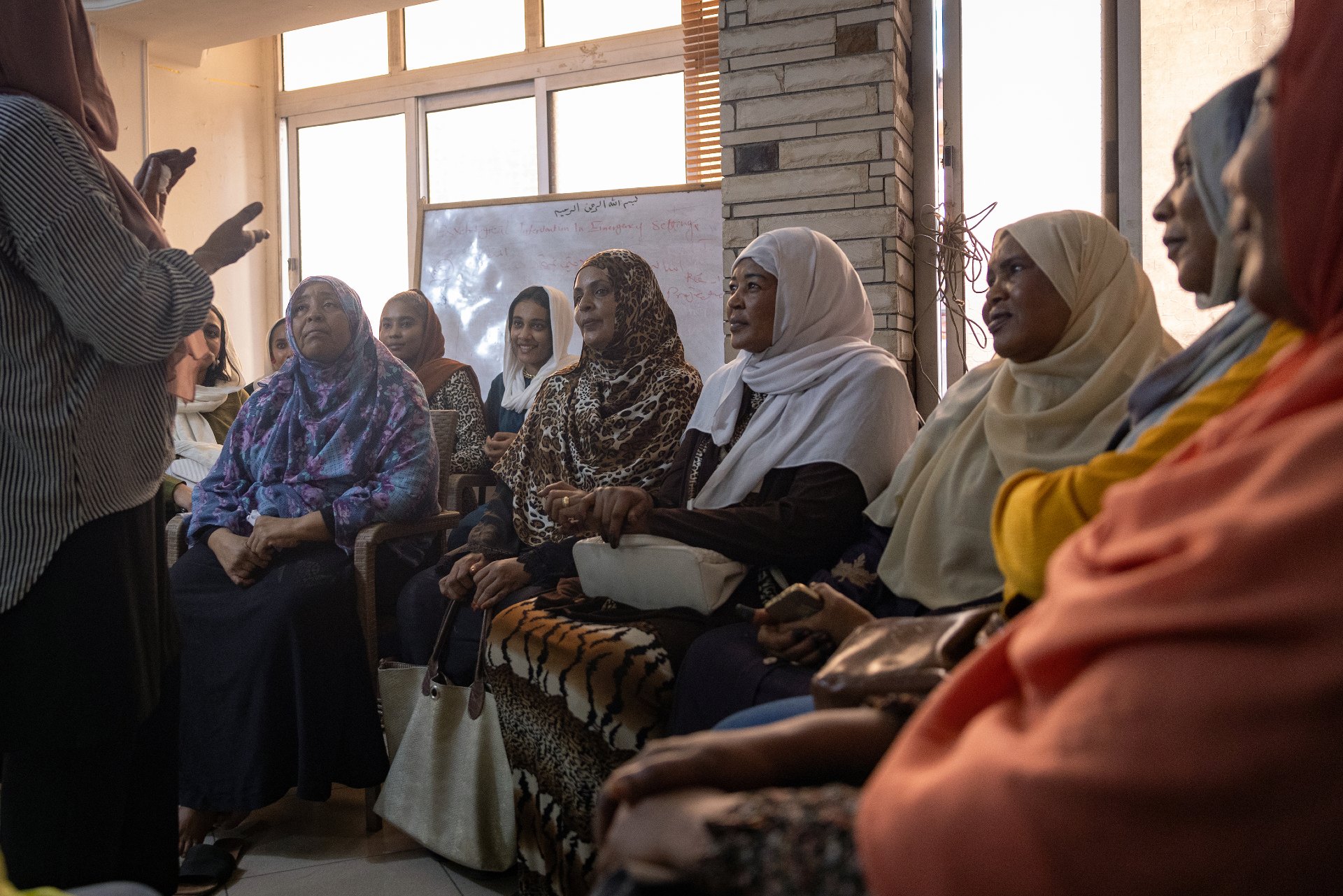
Meanwhile, a severe, yearslong economic crisis strains Egypt’s population, over 60 percent of whom are either poor or vulnerable to poverty. “Even if we’re welcome here, I feel like I’m taking up space and oxygen,” Orsula observes, “and everyday this feeling grows, but we have to live with it.” Referring to the destruction of Sudan’s civilian infrastructure and life, she continues, “If the war ends today, we still can’t go back.”
Support independent journalism that exposes oligarchs and profiteers
Donald Trump’s cruel and chaotic second term is just getting started. In his first month back in office, Trump and his lackey Elon Musk (or is it the other way around?) have proven that nothing is safe from sacrifice at the altar of unchecked power and riches.
Only robust independent journalism can cut through the noise and offer clear-eyed reporting and analysis based on principle and conscience. That’s what The Nation has done for 160 years and that’s what we’re doing now.
Our independent journalism doesn’t allow injustice to go unnoticed or unchallenged—nor will we abandon hope for a better world. Our writers, editors, and fact-checkers are working relentlessly to keep you informed and empowered when so much of the media fails to do so out of credulity, fear, or fealty.
The Nation has seen unprecedented times before. We draw strength and guidance from our history of principled progressive journalism in times of crisis, and we are committed to continuing this legacy today.
We’re aiming to raise $25,000 during our Spring Fundraising Campaign to ensure that we have the resources to expose the oligarchs and profiteers attempting to loot our republic. Stand for bold independent journalism and donate to support The Nation today.
Onward,
Katrina vanden Heuvel
Editorial Director and Publisher, The Nation
More from The Nation
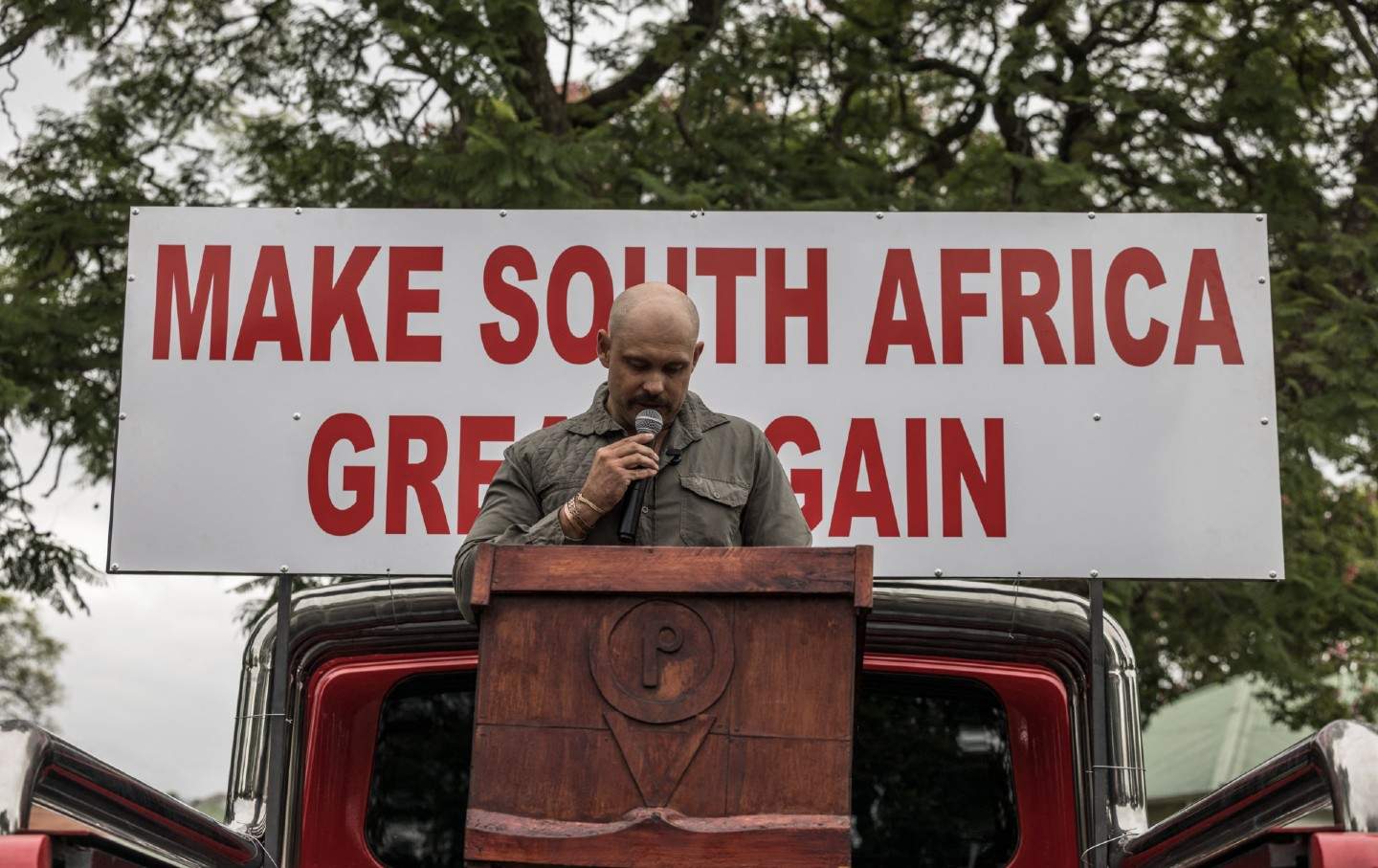
Why Trump Is Threatened by South Africa Why Trump Is Threatened by South Africa
The country’s Constitution gives its citizens more than a right to the pursuit of happiness. But attempts to redeem that commitment to justice have enraged American reactionaries....
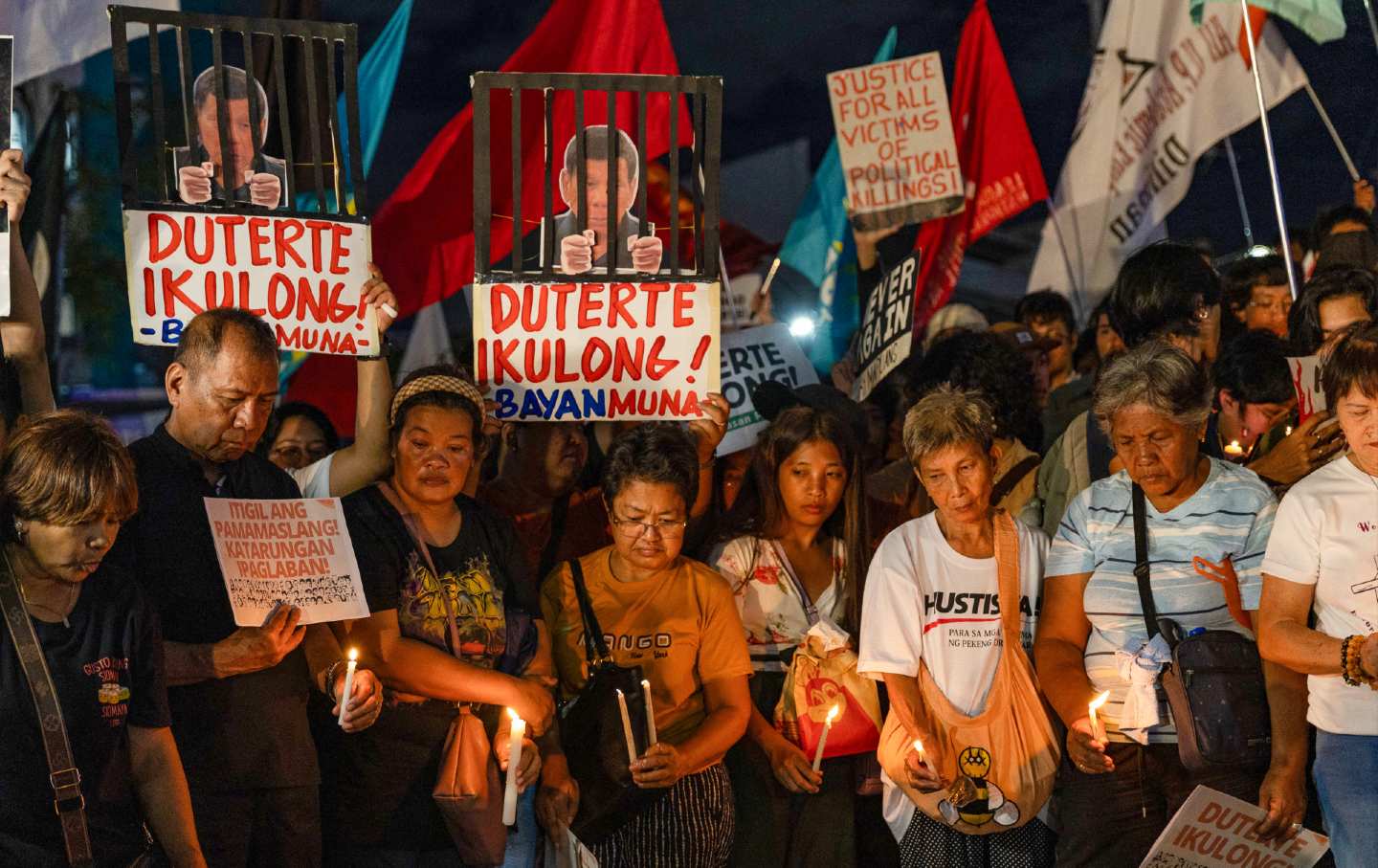
Rodrigo Duterte Used the Philippines’ US-Made Constitution Against Itself Rodrigo Duterte Used the Philippines’ US-Made Constitution Against Itself
The autocratic spectacle of Duterte’s presidency should be a warning to the United States.
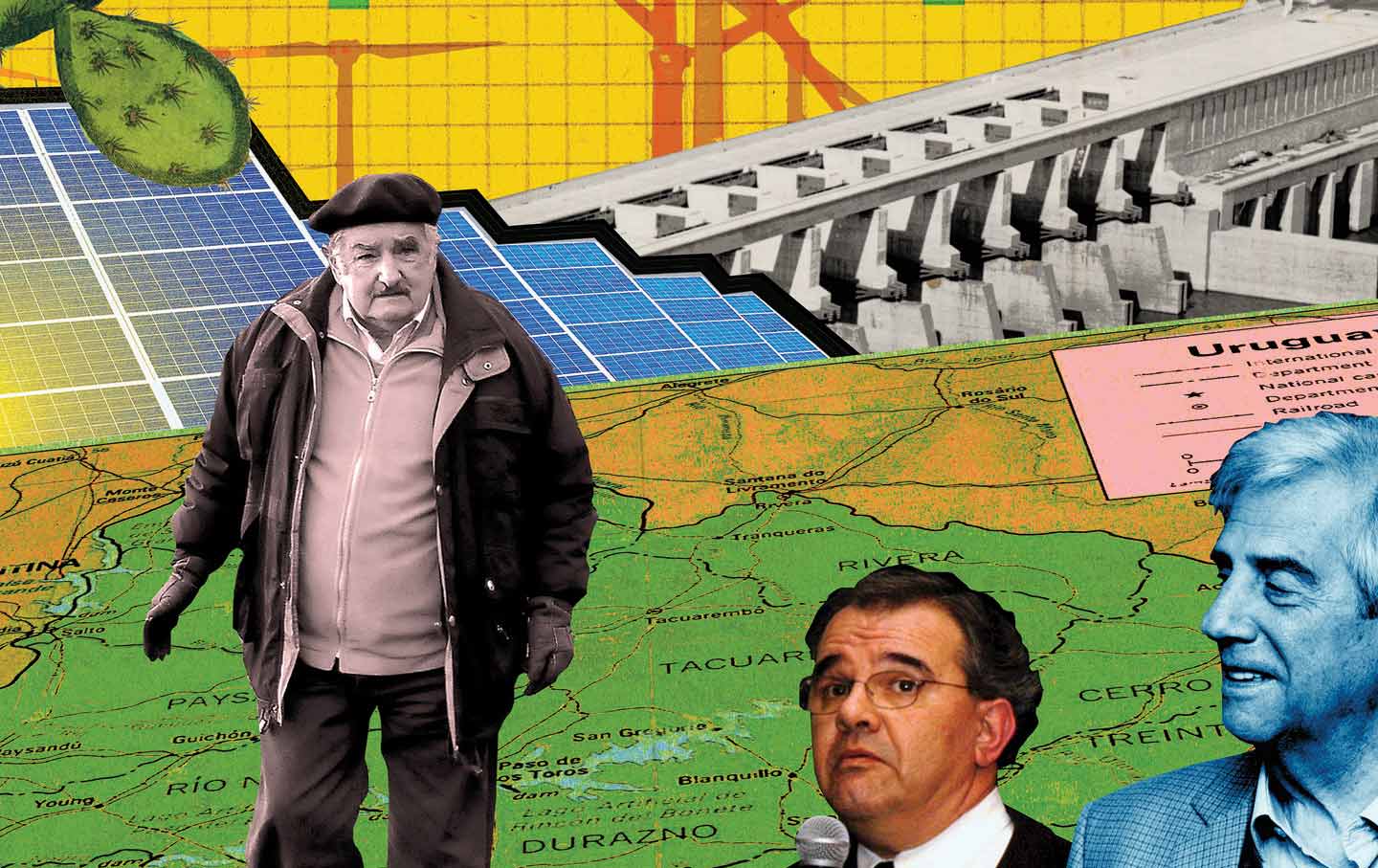
Going for Green: Uruguay’s Renewable Energy Revolution Going for Green: Uruguay’s Renewable Energy Revolution
With no fossil fuel reserves to rely on and domestic demand rising, the country had to get creative—or go broke just trying to keep the lights on. Here’s how they did it.
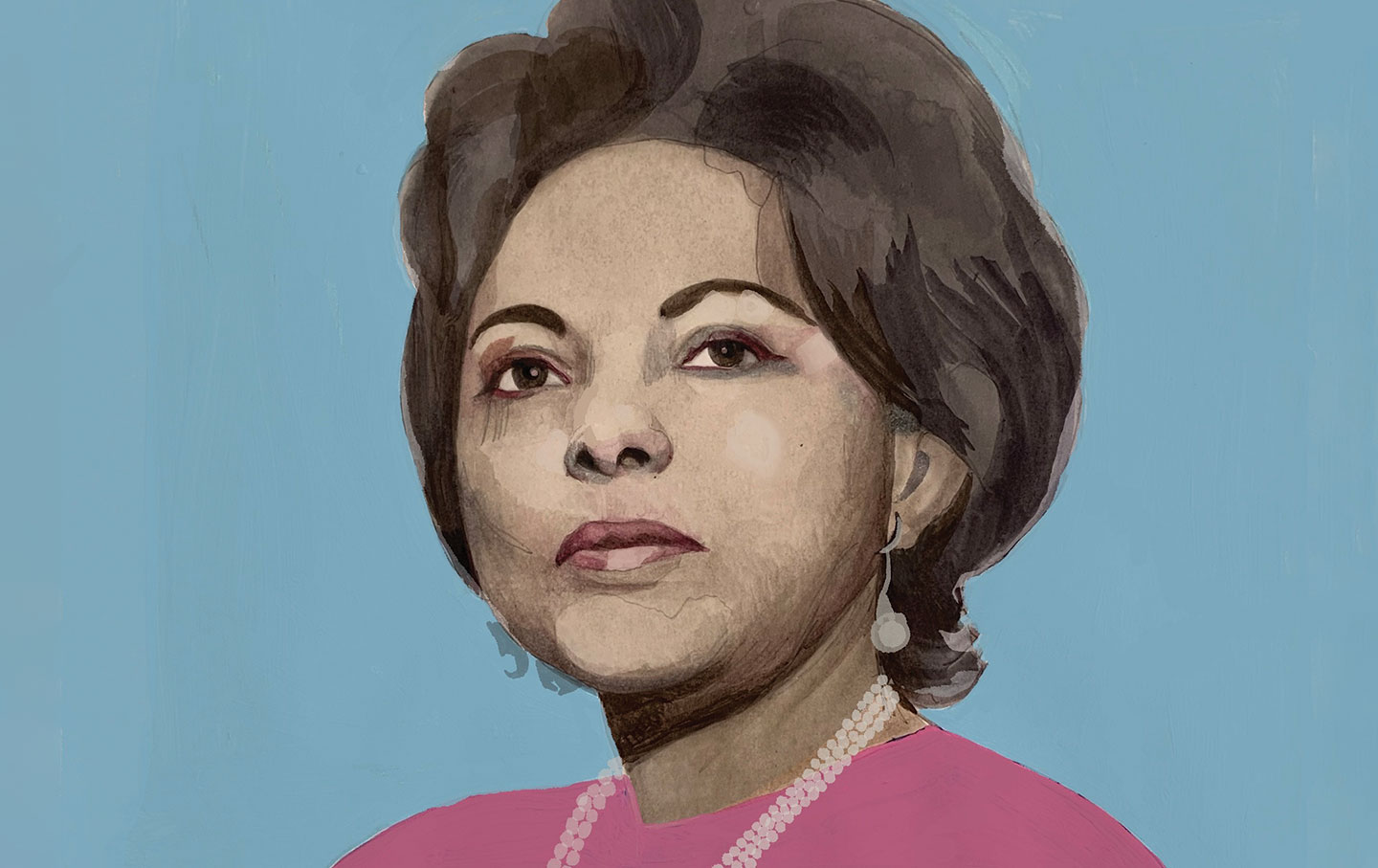
Andrée Blouin’s Revolutionary Lives Andrée Blouin’s Revolutionary Lives
The African political leader’s autobiography, My Country, Africa, also offers a larger story of empire, oppression, and resistance on the continent.
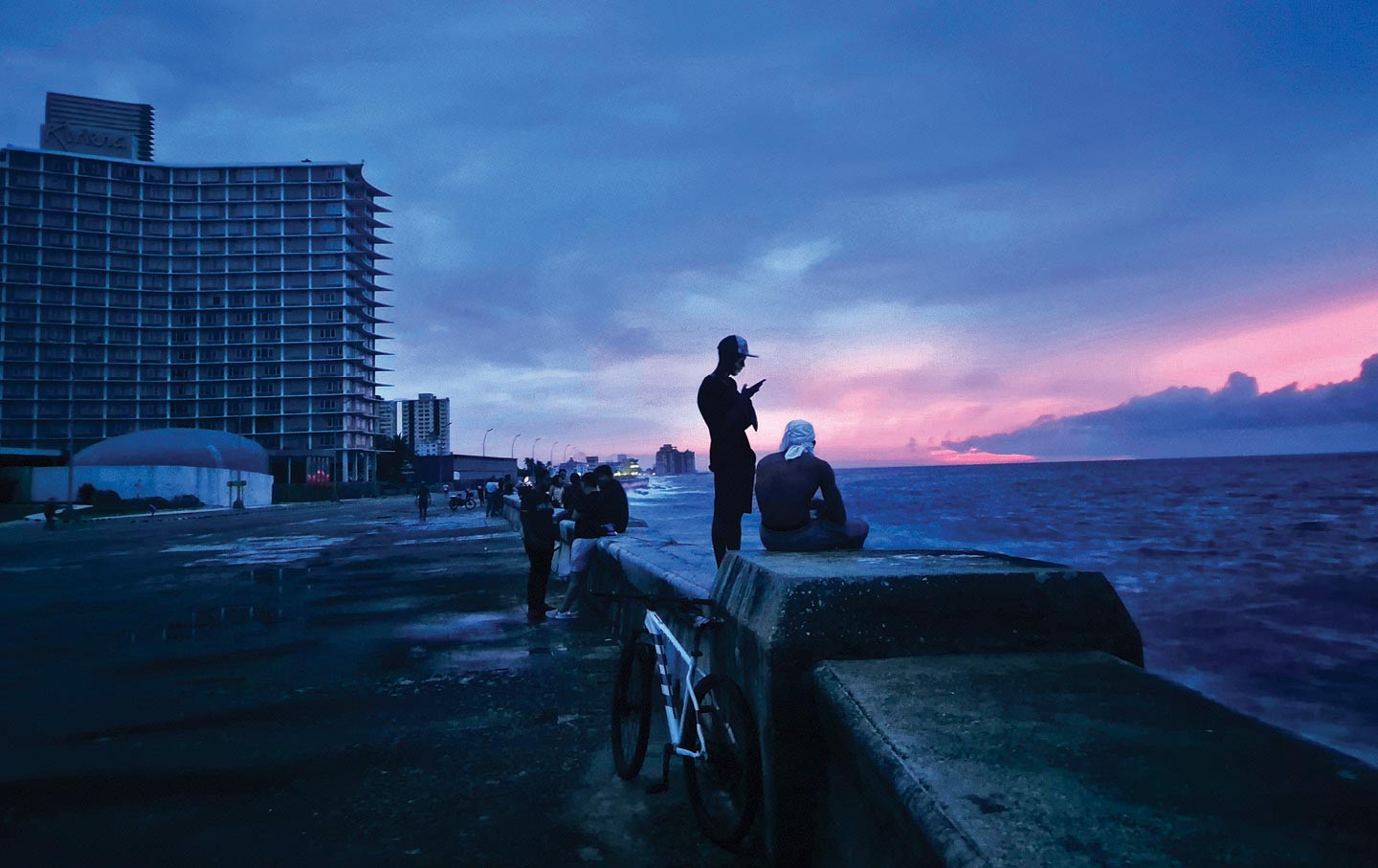
Life in Cuba Under Sanctions Life in Cuba Under Sanctions
Ordinary Cubans are trapped in a vicious circle of government mismanagement exacerbated by the US embargo.
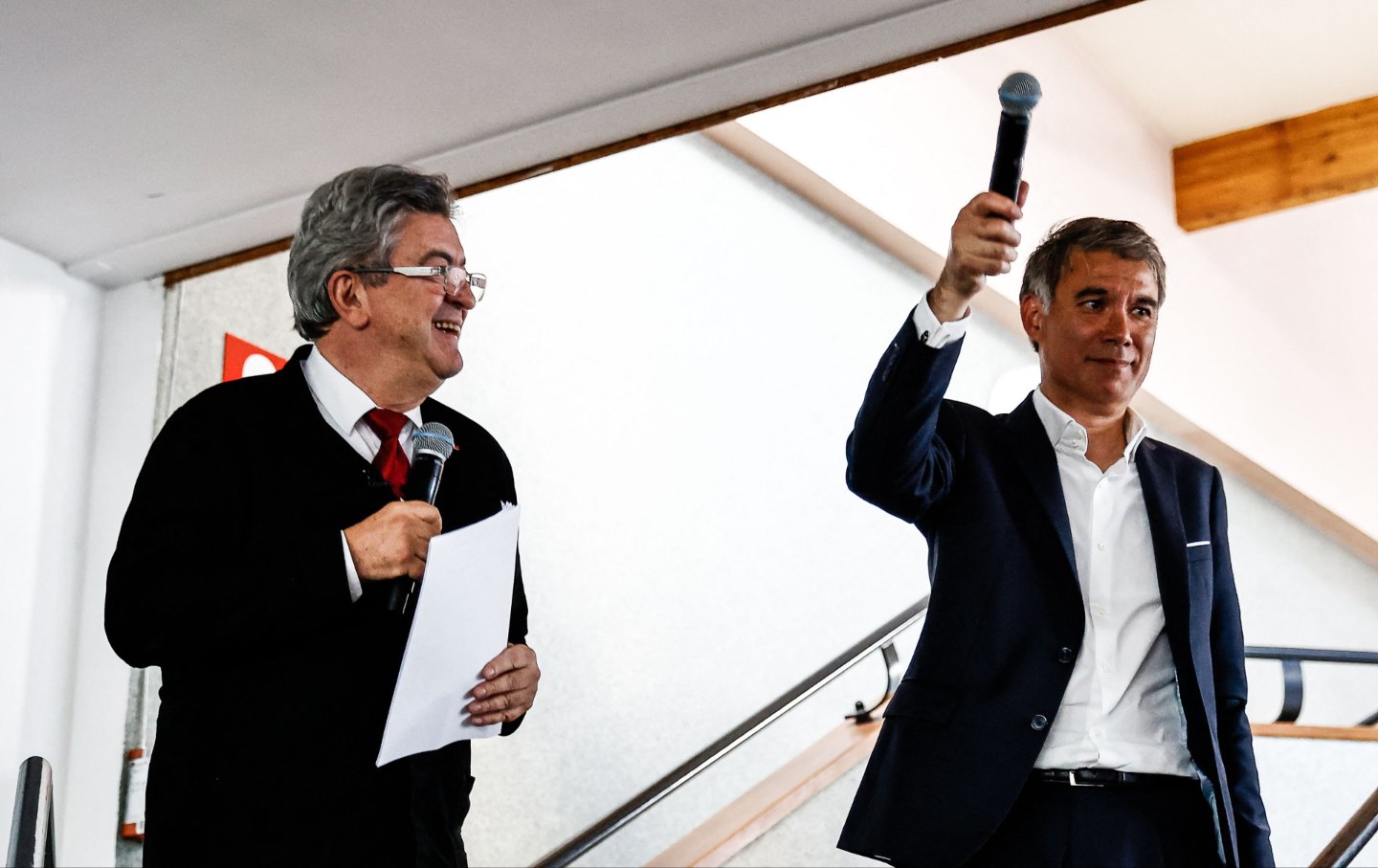
The Crisis Engulfing the French Left The Crisis Engulfing the French Left
The New Popular Front alliance looked like the best hope the left had against Macron and Le Pen. But after months of internal conflicts, it’s on the brink of collapse.


